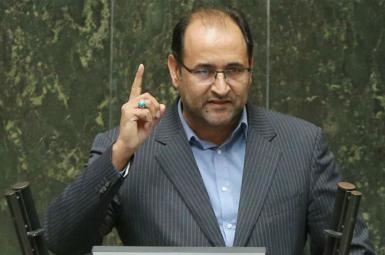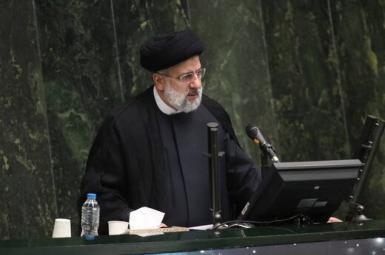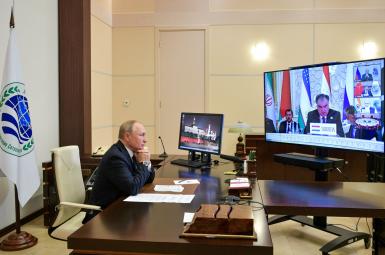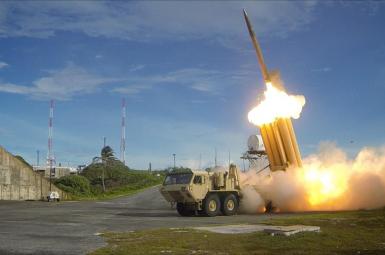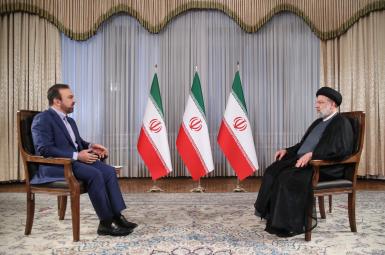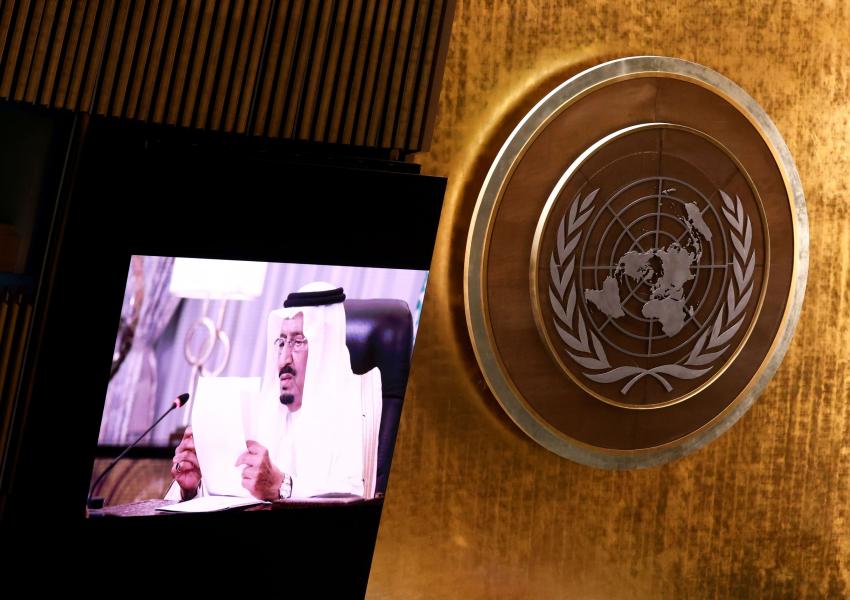
Iran Spokesman Optimistic Over Saudi Relations After NY Meeting
Hours after Saudi Arabia's King Salman bin Abdulaziz Wednesday told the United Nations General Assembly (UNGA) of his hopes that tentative bilateral talks with Iran would build confidence between the neighboring countries, Iranian Foreign Ministry Spokesman Saeed Khatibzadeh said the talks were "good" and that messages had been exchanged "at a proper level" since the administration of President Ebrahim Raisi (Raeesi) took office in August.
"If Saudi Arabia pays serious attention to Iran’s message that the solution to the region’s problems lies in the region itself and there should be an inclusive regional solution, the two countries may have a good, sustainable relationship," Khatibzadeh told the official news agency (IRNA) in New York on the sidelines of the UNGA. Khatibzadeh said there has been "remarkable progress" in the talks over Persian Gulf security.
In his prerecorded speech to the UNGA, King Salman expressed hope that “talks between the two nations can lead to tangible results that pave the way to achieving the aspirations of the region’s people.”
Raisi, who has stressed the importance of improving relationships with Sunnis at home and abroad, told the UNGA in a prerecorded speech that he wanted "effective interaction" with neighboring countries while criticizing the "destructive role" of the United States.
On Tuesday, Iranian Foreign Minister Hossein Amir-Abdollahian met his Saudi counterpart and officials from other regional Arab states in New York, and said strengthening ties with neighbours was a priority of the Raisi administration.
In a report Wednesday Bloomberg said diplomats from Iran, Saudi Arabia, France, the European Union, and other regional countries had met Tuesday at the Iraqi ambassador’s residence in New York. The Iranian foreign ministry described the event as a follow-up to the August 28 Baghdad summit, and had explored ways of pursuing the resolutions agreed in Baghdad before a second meeting of the Baghdad Conference was held in Jordan.
The Baghdad summit offered an opportunity for diplomatic contact between Iran and Saudi Arabia that has been rare since Riyadh and Manama cut diplomatic ties with Iran in 2016 after protestors attacked the Saudi embassy in Tehran after the Saudis executed 47 dissidents including leading Shi'ite cleric Sheikh Nimr al-Nimr.
Iraq has in the past few months endeavored to bring the two regional rivals together for talks. Iran's ambassador to Baghdad, Iraj Masjedi, said August 31 that three rounds of talks had been held with Iraqi facilitation and further talks were on the agenda.
Iranian media generally highlighted King Salman's positive tone in his UN speech on relations with Iran and peace as a "strategic option," while putting less stress on his call to prevent Iran from possessing nuclear weapons.
Riyadh supported former US president Donald Trump in abandoning the 2015 nuclear agreement with Iran, which curtailed the Iranian nuclear program, and has been concerned about President Joe Biden’s talk of reviving it.
In his UNGA speech Salman also said Ansar Allah in Yemen, generally called the Houthis, had rejected initiatives to end the war and that Saudi Arabia would defend itself against ballistic missiles and armed drones. Since the Saudis began their military intervention in 2015, Iran has expressed support for Ansar Allah while insisting it offers advice rather than military hardware. UN experts have said Iranian missiles and drones have been used by Houthis to target the Kingdom.

